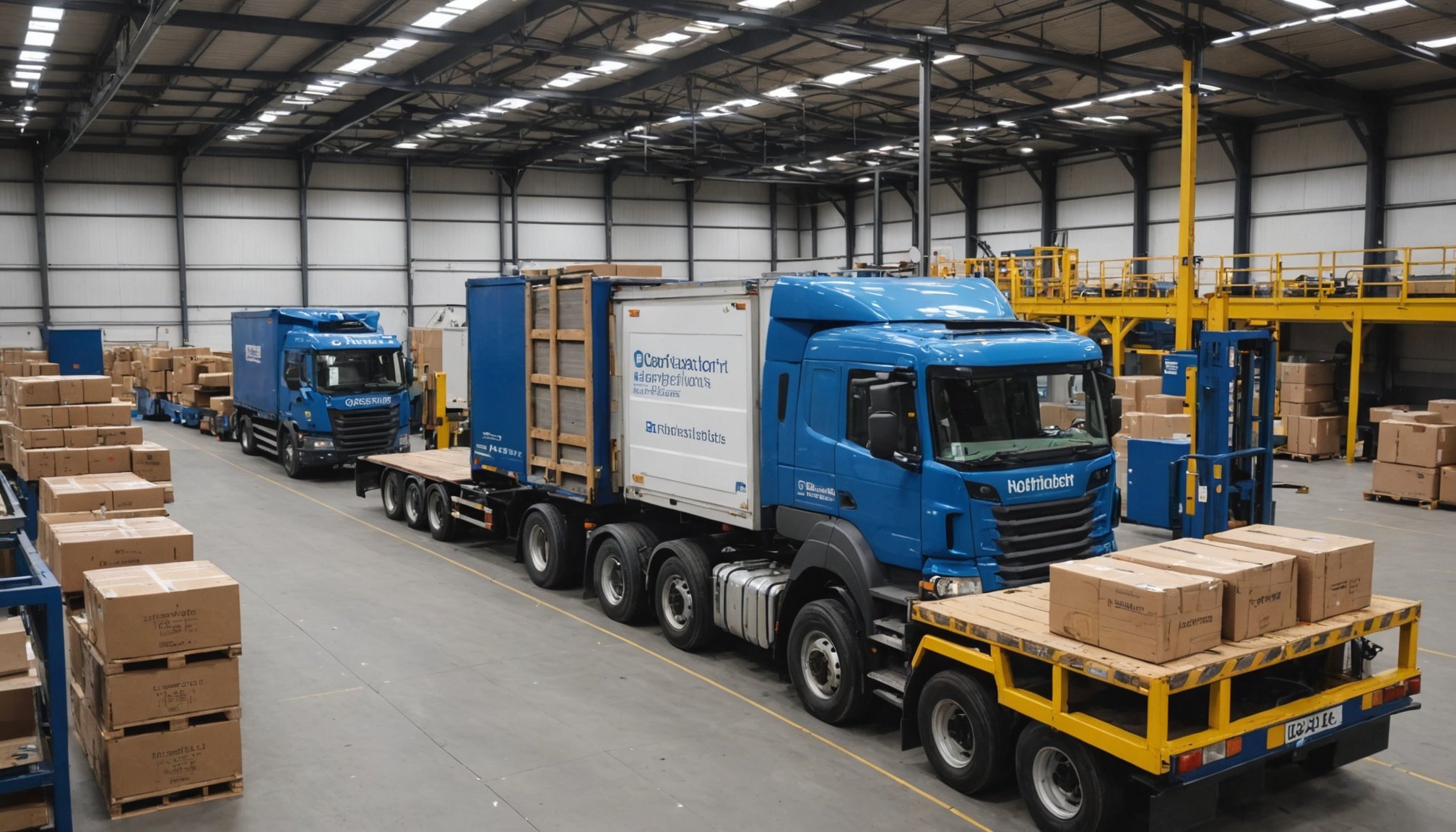Overview of Employee Training in the Logistics Sector
In the rapidly evolving logistics industry, employee training has gained significant importance. Tailored training programs are essential as they cater to specific needs, optimising employee performance and aligning with industry demands. Current trends in employee training methodologies focus on flexibility and adaptability, integrating both traditional and digital learning approaches. This blend ensures that employees are equipped with the latest skills and knowledge.
Nottingham, a key player in the logistics sector, faces unique challenges that demand specialised training programs. These challenges stem from its geographical significance and the constant evolution of logistics operations. As a result, Nottingham’s training programs are designed to address local issues while maintaining global relevance. Emphasising both comprehensive content and local context, these programs aim to develop a skilled workforce ready to meet industry demands.
This might interest you : Proven Approaches to Cultivating a Strong Mental Health Program in London Workplaces
Therefore, it is vital for logistics companies in Nottingham and beyond to invest in employee training logistics. Such investments not only improve company performance but also enhance employee satisfaction. By incorporating modern training methodologies, companies can ensure their workforce remains competent and competitive in this dynamic industry.
Measuring Training Effectiveness
Training effectiveness in the logistics sector is vital for ensuring that programs deliver tangible benefits. To evaluate this, first establish key performance indicators (KPIs) that align with organisational goals. For example, KPIs might measure improved skills development or increased operational efficiency.
Also to discover : Mastering Internal Communication: A Comprehensive Blueprint for London Businesses
Evaluation methods must be robust and multi-faceted. Quantitative tools, such as assessments and scorecards, help capture improvements in specific competencies post-training. Qualitative feedback through surveys and interviews can offer insights into employee satisfaction and engagement with the training program.
Innovative technology tools, like Learning Management Systems (LMS), can track and analyse learning progress and performance metrics over time. An effective LMS incorporates feedback loops so training programs can be continuously refined and improved, addressing any gaps or challenges faced by employees.
Incorporating a variety of measurement techniques ensures a comprehensive view of training effectiveness, allowing organisations to adjust their logistics training curriculum based on the insights gained. Engaging methods, like role-playing and simulations, often provide useful data on real-world application and problem-solving skills. Prioritising continuous feedback supports sustained improvements in performance metrics and fortifies the overall efficacy of training initiatives.
Key Components of an Effective Training Program
A comprehensive logistics training curriculum should focus on developing crucial skills necessary for industry success. Essential areas of skills development include supply chain management, warehouse operations, and regulatory compliance. Training program components must be robust and align with real-world job tasks to ensure relevance and effectiveness.
Structuring training modules with a combination of theoretical knowledge and practical application is critical. These modules often incorporate a mix of instructional methods, such as workshops, seminars, and interactive sessions. Such diversity enables learners to grasp concepts thoroughly and apply them in their daily operations.
Another key component is the integration of technology. Online learning platforms and e-learning resources are essential for flexible and accessible training. These tools allow for tailored learning paths, accommodating various comfort levels with technology and self-paced education.
To further enhance the logistics training curriculum, organisations should consider innovative training technologies, such as virtual simulations and artificial intelligence-driven analytics. These tools facilitate immersive learning experiences and help track individual progress, providing data-driven insights for continuous program improvement.
Case Studies of Successful Training Programs in Nottingham
Exploring training case studies in Nottingham provides valuable insights into effective programs within the logistics sector. By examining specific companies, we can identify key strategies that lead to success.
Company A: Innovative Training Approaches
Company A demonstrates a pioneering spirit with its use of immersive technologies in training. Incorporating virtual reality simulations enhances the learning experience by replicating real-world scenarios, boosting both confidence and competence among employees.
Company B: Employee Engagement and Outcomes
Focused on active participation, Company B employs interactive modules coupled with gamification techniques. This approach not only engages employees but also leads to higher retention rates, showcasing the tangible benefits of dynamic training methods.
Company C: Lessons Learned from Implementation
Through trial and adjustment, Company C has refined its training strategies to suit its unique needs. By continuously gathering feedback, they adapt content and delivery styles, emphasizing flexibility. Community involvement further strengthens their programs, creating a supportive learning environment.
These Nottingham logistics companies highlight the importance of innovation, engagement, and adaptability in training programs, underpinning employee success stories and fostering a skilled workforce in the sector.
Addressing Industry Challenges in Training
In the dynamic logistics industry, addressing logistics challenges in training is crucial for preparing a competent workforce. The sector often grapples with fluctuating demand, technological advancements, and regulatory shifts. These factors introduce complex training obstacles that require targeted solutions.
Effective strategies to overcome these barriers include establishing clear learning objectives and developing scalable sector-specific solutions. By tailoring training programs to meet specific industry needs, organisations can ensure relevance and practicality. For instance, aligning training content with the latest regulatory protocols and industry standards fosters compliance and efficiency.
The role of leadership is pivotal in this process. Leaders should actively advocate for robust training initiatives, securing necessary resources and fostering a culture of continuous improvement. Supporting such initiatives enhances employee engagement and motivation, ensuring successful knowledge transfer.
Moreover, implementing adaptive learning technologies can bridge the gap between training and real-world application, providing employees with hands-on experience. Engaging leadership promotes not only skill acquisition but also retention, ultimately driving organisational success in the logistics sector.
Ongoing Employee Development in Logistics
The logistics industry thrives on continuous transformation, making employee development paramount for sustained success. As logistics operations advance, the demand for updated skills and lifelong learning becomes essential. This ongoing learning approach ensures that logistics professionals stay competent amid industry changes.
Incorporating continuous learning into the employee journey not only enhances proficiency but also boosts confidence. Various resources and platforms are available to facilitate this learning journey. Online courses, webinars, and industry-specific certifications offer flexible options that cater to different learning styles and schedules.
Local partnerships within the logistics sector can further enrich development opportunities. Collaborations with educational institutions and training organisations provide bespoke programs that align with regional logistics needs. These dedicated initiatives foster skills enhancement and encourage a culture of learning within the industry.
By prioritising employee development, logistics companies can ensure their workforce is equipped with cutting-edge knowledge and skills. Such investment in continuous learning is instrumental in driving sector growth and maintaining a competitive edge.











